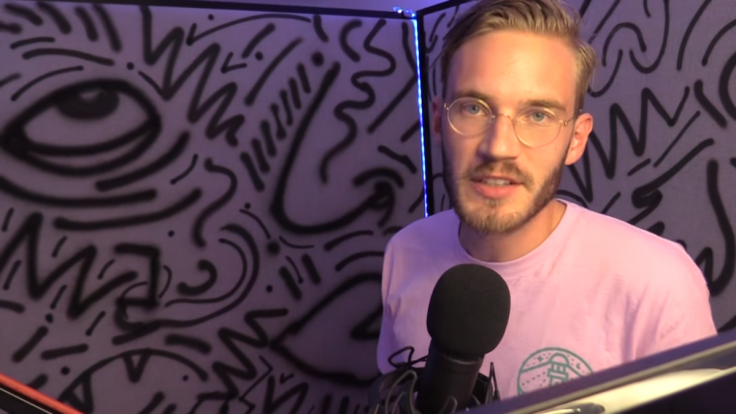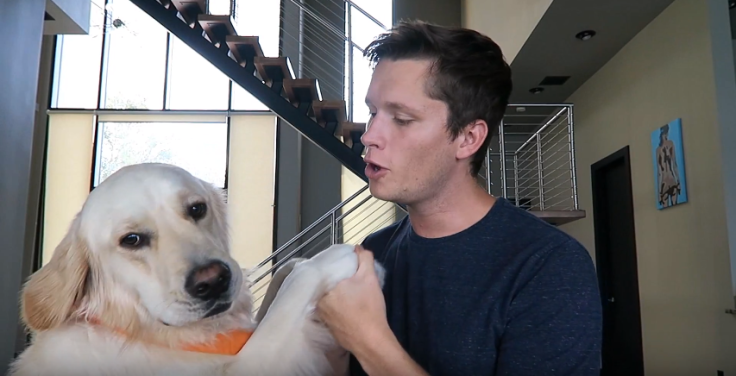Patchy prosecution of PewDiePie: Why YouTubers are set to survive scandal after scandal
Controversies concerning Counter Strike and Warner Bros won't stop YouTube culture's growth
There's a well-established national hobby in the UK, building someone up from the ground only to pull the rug from underneath them and watch them tumble. The 'rags to riches' story is common across the globe, yet only the Brits seem to take perverse pleasure in seeing those riches snatched back at the last minute.
When it comes to the rise of the YouTuber – the bedroom-based superstars credited with bringing a fresh approach to games coverage – I like to think this rather dark view is why I, and plenty of other journalists, saw major bumps in the road ahead for Let's Play heroes, even when PewDiePie and co were at the heights of their powers.
Which brings us to a series of recent scandals involving some high-profile YouTubers, which have seriously muddied the waters in what remains a burgeoning industry. A few weeks ago, prominent YouTubers TmarTN and Pro Syndicate were found to have heavily promoted a Counter-Strike skin gambling website that they in fact part-owned – a declaration they didn't make in their videos.
This was quickly followed by news that a whole slew of YouTube stars published paid-for videos promoting Warner Bros' Middle-Earth: Shadow of Mordor back in 2014, without disclosing that money had changed hands.
Neither of these stories were especially surprising to the games press, but it predictably leapt on them with gusto – in part because the media itself has taken a beating in recent years over unfounded claims of corruption, and in part because the notion that YouTubers have been in dodgy legal and ethical waters for some time is well-established among journalists.
For many gamers, however, the idea that YouTubers could act in a devious manner in order to pocket a few pennies was genuine news. It's no exaggeration to say the halo has well and truly slipped, but any idea that this is the end of YouTuber phenomenon is misplaced.

To begin, we need to put these YouTube stars in some sort of context. Online video, rather than print or the written word, is where younger people have been flocking in increasing numbers for years. These video prodigies were pitched as impartial in an online space that had grown distrustful of traditional media. Here were people making videos from their bedrooms, talking about the games they loved with a sense of passion and honesty. They weren't trained, they're not journalists, and so the idea was that their views could be trusted.
As they grew more popular, their messy bedroom backdrops became slick apartments. Like the unassuming guy with the weak voice who somehow makes it to The X Factor's live finals, the fact people had watched these YouTubers progress from dodgy webcam recordings to videos with a higher production budget than your average daytime TV drama wasn't seen as the product of corruption, but rather rightful progression.
Even a moderately successful YouTuber can boast a comparable reach and influence to that of the biggest traditional games sites and magazines. These, often young, people found themselves thrown into a world of endless opportunity with no strings attached. Suddenly the budgets publishers previously set aside to fly journalists over for a hands-on session were now redeployed to woo them. The irony being they're called 'influencers' by the people hoping to influence them with lavish press trips and freebies.

Both YouTube and indeed the law itself has been playing catch up, and while lawsuits are being filed against some involved in the CS:GO betting scandal, no one currently appears to know just which YouTubers have broken the law in what countries.
The very fact fresh-faced YouTubers who suddenly found fame ended up taking advantage of it should hardly be a surprise. Hand a 17-year-old learner driver the keys to a F1 car and, chances are, people are going to get hurt. If the person at the wheel is unfamiliar with the power at their disposal and the impact any mistakes they make may have on others, it'll take them coming off the track a few times before the gravity of their role becomes clear. Is it fair to tar all YouTubers with the same brush, however?
"All of these news articles are using me as a clickbait, putting my name to shame, when I didn't even do anything wrong," said PewDiePie, the world's most popular YouTuber, in response to press criticism of his own paid-for Shadow of Mordor video. Unlike others, PewDiePie did include a notification that the video was "sponsored by Warner Bros." in the video description – something he claims the majority of press coverage failed to mention. "We weren't required to disclose. I still did it. Others didn't. Because I'm the biggest YouTuber, it's my name that pops up."
PewDiePie notes that his disclosure of payment could have been "better", although since the Federal Trade Commission (FTC) in the US updated its guidelines on promotional videos in 2015, he now mentions any such deals at the start of broadcast. In his view, the fallout he's endured in recent days in largely down to the games media. "This happens time and time again with media. They take someone popular like me, and they run whatever article they think is going to get clicks," he continues in his response. "I don't f*cking need you. I have an audience and I can talk to them. You're literally insignificant, and I think that's why you're pulling this shit, because you know it."
It would be churlish to suggest he doesn't have a point and, likewise, those keen to suggest the downfall of YouTubers is imminent are jumping the gun. The games media is still in as much trouble as it ever was, perceived to be out of step with its audience and incapable of delivering its message in manner appealing to an increasingly tech-savvy audience. On that score, nothing has changed. However, the idea that YouTubers are somehow the answer – an unbiased, ethical, honest bunch just in it for the games – has been well and truly undermined.
At some point, someone, somewhere is going to work out how to talk to gamers without schmoozing publishers or running stealth ad campaigns in order to pay their way. On that day, both the games media and the YouTubers it loves to hate will be in big, big trouble.
For all the latest video game news follow us on Twitter @IBTGamesUK
© Copyright IBTimes 2024. All rights reserved.







